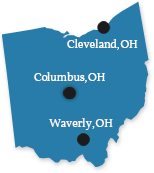
Cleveland Social Security Disability Lawyers
When most people think of Social Security, they think of its old-age benefits, which provide monthly payments to retired Americans. Although not as well-known as Social Security’s retirement benefits, another type of benefit is equally important for millions of Americans: Social Security Disability Insurance (sometimes called SSD or SSDI).
The rules for determining who is eligible for SSDI benefits, and the procedures for applying for those benefits, are complex. In fact, more often than not, the government denies initial disability claims. Consequently, disabled Ohioans should consult an experienced Cleveland Social Security Disability lawyer for assistance with their disability claim.
Social Security Disability Insurance Basics
Social Security Disability Insurance provides coverage for workers who become disabled. It can also provide benefits for certain members of a disabled worker’s family. However, because SSDI is insurance, it is only available for workers who have worked long enough and paid into the Social Security system when they become disabled.
What Benefits Does SSDI Provide?
SSDI provides benefits in the form of monthly payments to workers who become disabled and are otherwise eligible for the program. The precise amount of the payment that a worker receives can vary widely, because it depends on each individual worker’s work history.
The maximum SSDI benefit per worker is $3,101 per month. But the average amount SSDI pays each disabled worker is about $1,200 per month.
But SSDI doesn’t just provide benefits for the disabled worker. If the worker has a spouse or children, they may also qualify for monthly payments from the program. In some circumstances, even dependent grandchildren can receive disability benefits on a disabled worker’s account.
Who is Eligible for Social Security Disability Benefits?
The rules and regulations that define eligibility for Social Security Disability benefits are complex. In general, a worker will be eligible for payments out of SSDI if he or she meets the following requirements:
- The worker is disabled;
- The disability is caused by a severe medical condition;
- That condition has lasted, or is expected to last, for at least one year or result in death; and
- The worker has worked a sufficient amount of time before becoming disabled.
To be eligible to receive SSDI family benefits, a person must be related to an eligible disabled worker as his or her:
- Spouse (or ex-spouse in some circumstances);
- Minor child or disabled adult child; or
- A dependent grandchild whose parent is disabled or deceased.
What Does “Disability” Mean?
The Social Security Administration, which administers SSDI, defines disability as an inability to engage in “substantial gainful activity.” Substantial gainful activity refers to work that pays at least $1,180 per month (or $1,970 per month for a blind worker). In other words, if a person can’t earn at least $1,180 each month through work because of a severe medical condition, that person counts as disabled.
What is a severe medical condition? A medical condition is considered severe if it significantly limits a worker’s ability to do basic work activities for at least one year. The Social Security Administration has a list of medical conditions that meet this requirement. However, other conditions can also qualify.
To be eligible for Social Security Disability benefits, a person’s disability must have lasted, or be expected to last, for at least one year or result in death. Unlike under the Ohio workers’ compensation system, there is no partial disability in Social Security.
How Long Do SSDI Benefits Last?
A disabled worker can continue to receive SSDI benefits until:
- The worker’s condition improves. If the worker’s condition improves to the point that he or she is no longer disabled, then SSDI benefits will end. The Social Security Administration requires regular Continuing Disability Reviews to determine whether a worker receiving SSDI is still disabled.
- The worker reaches retirement age. When a disabled worker reaches retirement age, his or her SSDI benefits are converted into old-age benefits. The amount of monthly benefits will not change, but the need for Continuing Disability Reviews will end.
Applying for Social Security Disability Benefits
Applying for Social Security Disability Insurance benefits is a complex and often confusing process. More than half of all initial disability claims – about 60% – are denied by the government. Successfully applying for SSDI benefits typically requires gathering and submitting medical documentation and extensive paperwork.
Fortunately, applicants don’t have to go through the process alone. An experienced Social Security Disability lawyer can help ensure that an application is completed correctly and all supporting materials are submitted on time.
But even if an application is denied, that isn’t the end of the story. SSDI denials can be appealed. And an attorney can help with that process, too.
Contact Our Social Security Disability Attorneys in Cleveland
With legal help, you can rest assured that your SSDI application provides you the best chance at getting the benefits you deserve. You need an attorney who understands the ins and outs of the Social Security system and knows how to best advocate on your behalf.
The Ohio Social Security Disability attorneys at Plevin & Gallucci have decades of experience representing workers, and we’re committed to getting workers what they deserve. Contact us today if you have had a Social Security Disability claim denied, or if you want legal representation as you prepare to file a claim.

